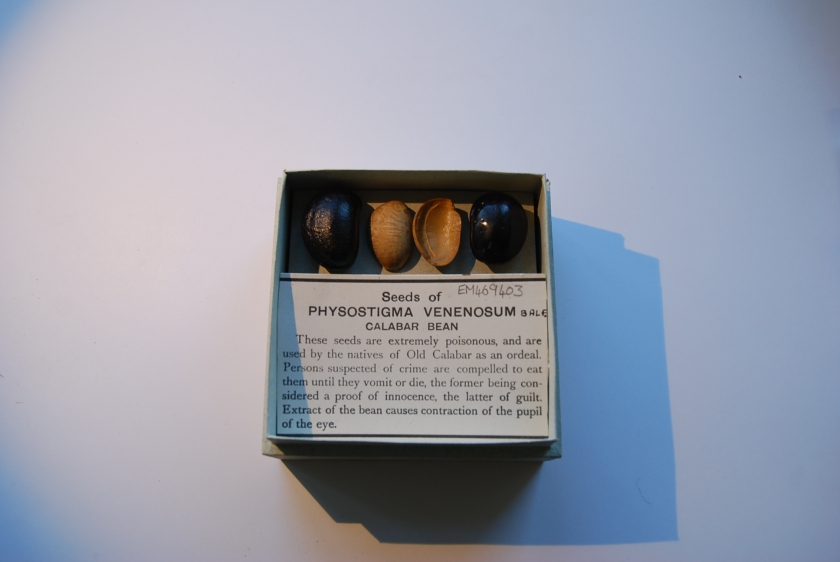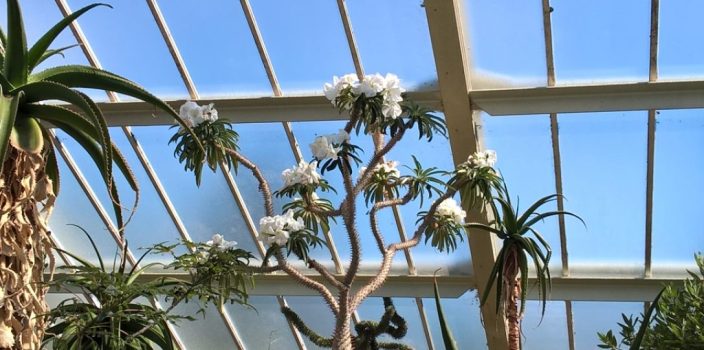Another of my posts on the Manchester Museum Herbarium blog, on when an ordeal can become a remedy.
 Calabar beans and seed cases from the collection of the Manchester Museum Herbarium.
Calabar beans and seed cases from the collection of the Manchester Museum Herbarium.
Guest Post by Laura Cooper
For much of human history, people have sought to find a way to prove or disprove a person’s guilt. Today, we hope evidence and a fair trial will do this, but people have always wanted a quick and definitive way of doing this. This is where the idea of the trial by ordeal came in. Most people are familiar with the practice of dunking suspected witches in bodies of water in parts of 17th century Europe; if they floated they were guilty and if they sunk they were innocent. But in what was then called the Calabar region (now North-East Nigeria) in the 19th century, a particularly poisonous seed was used in these trials by ordeal. This plant, known as the Calabar bean, Physostigma venenosum, became notorious as a…
View original post 538 more words
